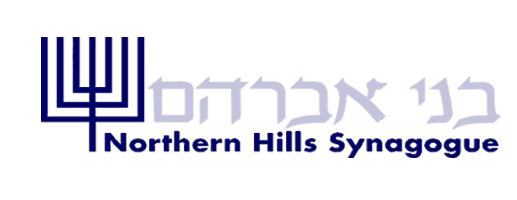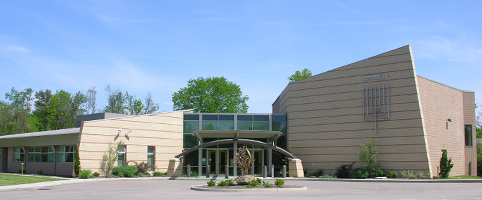Our Torah reading this morning begins with the statement that God remembered Sarah. That is, the promise from chapter 18, the beginning of Parashat Vayera, that Sarah would bear a son, was to be fulfilled through the birth of Isaac. That promise was three chapters back in the Torah. Immediately before the statement concerning the birth of Isaac, we read about Abraham’s prayer for the household of Avimelekh, which had been stricken with infertility. The Talmud (Bava Kamma) comments on the juxtaposition, saying, “If someone prays on behalf of someone else, and he needs the same thing himself, he is answered first.”
The subject of praying for those who are ill has been in my mind because of a surprising response that I got to a recent e-mail. As you know, we read, at the time of the Torah reading, the names of people who are ill, and we say a “Misheberakh,” the prayer that begins with the words “Misheberakh avoteinu” (May the One who blessed our ancestors, Abraham, Isaac, and Jacob, Sarah, Rebecca, Rachel, and Leah, bless (whomever) and speedily send them healing of body and spirit,’ etc.)
People often ask to have the names of friends or relatives added to the list, but they don’t often ask to have names removed. Sometimes, I know that someone on the list has either recovered, or, unfortunately, died, and I can remove the name. Often, I don’t know, so the list tends to get very long, and, several times a year, we start it over again. My e-mail told people that we would be starting the list over at Rosh Hashanah, and I invited people to give me the names of people to be carried over or added. I thought of the message as a simple administrative issue, but I was overwhelmed by the response. It is no surprise that we are concerned about the health of people whom we know, but I was struck that there is so much interest in the Misheberakh prayer.
Let me first remind you of the basic Misheberakh prayer for the sick. This is the historical formula:
May the One who blessed our ancestors, Abraham, Isaac, and Jacob bless and heal so-and-so the son (daughter) of such-and-such. May the Blessed Holy One be filled with mercy toward him (her) to heal and strengthen him, and to keep him alive, sending him from Heaven complete healing of body and spirit, along with all those in Israel who are ill. It is the Sabbath (or “a Festival”), so we should not cry out, but healing will come speedily. May it come soon, and let us say: Amen.
The basic Misheberakh form, which is used for various situations, first appears in Gaonic times (the end of the first millennium CE), and the first reference to saying a Misheberakh for someone who is sick is in the 16th century. Traditional practice is to identify people, not with their fathers’ names, as we do in other situations, but with their mothers’ names. The formal rationale for that practice is the passage from Psalm 86, “Save the child of Your handmaid”. I think that there may also be an association of mothers with kindness and love. Of course, our recommended practice here is to use both mothers’ and fathers’ names, but that gives us a lot of names, so we sometimes fall back on the older traditional practice.
The phrase “It is the Sabbath, so we should not cry out” alludes to the Talmudic discussion, in Tractate Shabbat, about whether or not one should visit the sick on Shabbat. In general, one should not let anything detract from the serenity of the day, but the conclusion was that one may visit, using the disclaimer which has found its way into our Misheberakh prayer. I think that what happened was that, Shabbat or no Shabbat, people are concerned about their sick relatives and friends. At our synagogue, we have added the names of the matriarchs, Sarah, Rebecca, Rachel, and Leah, to those of Abraham, Isaac, and Jacob. Also, while I have kept the expression “kol holei Yisrael” (all those in Israel who are ill) in Hebrew, we say in English “along with all those who are ill”; obviously, we are concerned about many people who are not Jewish.
That’s what it is; what does it mean? First, by mentioning the name of someone who is ill, we let others know that the person is ill, and that will give them the opportunity to visit, to help the family of the sick person, etc. Making such an announcement, by the way, is not a violation of HIPAA. However, sometimes, a person or his family does not want his name mentioned publicly. That situation is covered by the phrase which I have added in English “as well as those whom we name in our hearts”.
Second, by raising the issue of healing, we keep it and the other issues connected with it, such as bikkur holim (visiting the sick) and gemilut hasadim (kind deeds) generally, and sh’mirat hanefesh (taking care oneself), in everyone’s minds. Among other things, I would hope that the saying of Misheberakhs in the synagogue inspires the physicians present to greater dedication to their work. When we attribute healing ultimately to God, we are not deprecating the practice of medicine. On the contrary, we learn at several places in the Talmud, doctors do God’s work, acting, as we do in various ways, as God’s partners.
Third, when people know that others are thinking of them, that may help them feel better.
The question which I have so far avoided is the big one of whether Misheberakhs work, whether they are causally efficacious in promoting healing. I have no doubt that, historically, most people have believed that their prayers could work in that straightforward sense, and the plain meaning of our Misheberakh and other prayers reflect that belief. People who believe that prayers have causal significance explain the obvious fact that, sometimes, people for whom we pray don’t recover by saying that those people were not worthy of recovering, that we didn’t pray hard enough, or that we were not worthy to have our prayers answered.
I really find those explanations offensive. By the same token, I cannot take seriously the experiments, which have been devised to test the efficacy of prayer. Honestly, I am invested in the position that such experiments could not work. When I say the daily prayer thanking God for giving us knowledge and understanding, I have in mind that our best scientific, rational, processes are the way of determining, to the extent possible, what is likely to happen in our experience. I assume a neat division of labor, in which science tells us what happens and religion tells us what it means.
Considering Misheberakhs, I think, for the most part, of the first three accounts of the prayer – letting people know that so-and-so is sick, etc. I say that I don’t want to exclude the last possibility, that the prayers might really work, and, in that connection, I think of the line from Hamlet, “There are more things in heaven and earth . . . . than are dreamt of in your philosophy.” I hope that I am not thereby being disingenuous.
I have one other way of understanding our practice. I regard prayer as fundamentally dialogical; we stand before God and say what we need to say. As part of our relationship with God, and recognizing God’s independence of us, I believe that, when we have a concern of great importance, it is simply the right thing to bring it before God.
The saying of Misheberakhs is not, of course, the only way in which we address questions of health or healing in Jewish life. Let me remind you of some other ways.
One is the so-called healing service, which includes various prayers and readings on the theme. We have held two healing services here, almost 10 years ago; the first was well-received, and the second fell flat, which is why we haven’t done any since that time. I actually got some hostile reaction in connection with the first service, from people who thought that I was trying “faith healing”. That obviously was not the case.
Conceptually, a healing service is like a Misheberakh, on a larger scale. There are other connections between Judaism and health. Many people have believed that the observance of kashrut promotes health. I don’t believe that, but, whenever I say that I don’t believe it, some people argue with me. Some people believe that the regular practice of prayer and the observance of Shabbat are good for one’s health. I don’t believe that there is any quasi-natural (magical) connection, but they may well be good for one’s mental health, which can affect physical health.
I referred a minute ago to sh’mirat hanefesh, taking care of oneself. At Deut. 4:9, we read “ush’mor naf-sh’kha m’od” (Take good care of yourself). In its context in Deuteronomy, the phrase refers to being very careful to remember God’s saving acts, but, in later Jewish tradition, it has come to mean avoiding danger, and, by extension, doing things which promote good health.
Maimonides wrote in the Laws of Murder and Guarding Oneself, “Our sages prohibited many things because they are dangerous, and, if someone endangers himself, saying, ‘What business is this of anyone else? Or ‘What do I care?’, he should be flogged.” The examples which follow in Maimonides’ code reflect ancient science, and we don’t flog people any more for violations of Jewish law, but the principle is clear. In recent years, the principle of sh’mirat hanefesh has been invoked, for example, to argue that smoking is prohibited by Jewish law.
The social dimension of sh’mirat hanefesh reminds us that, as Jews, we must be concerned about the health of all members of our society. I said that I will not talk about health care reform on the High Holidays, and I will not, except to remind you that, whatever health care plan you think is best, the subject is one of great moral, and, indeed, religious, significance.
Let me return now to the passage from the Talmud Bava Kamma which I mentioned earlier: “If someone prays on behalf of someone else, and he needs the same thing himself …”
That phrase certainly applies to all of us when it comes to healing. Most of us have, at one time or another, either asked that a Misheberakh be said for someone, or been named in a Misheberakh ourselves. All of us are ill at some time or another. Furthermore, we suffer, not only from physical ailments, but also from distress, disappointment, resentment, and perhaps anguish and heartbreak. We need refuat hanefesh as well as refuat haguf, healing of body and spirit.
In the year to come, may we act as God’s helpers in healing others with what ever means – medical skill, prayer, or personal attention – we have. May we take care of our own health. The Talmud started with the premise that God heals people and argues and we may and should engage in healing as well. Our thoughts can flow in the other direction as well. May we ground our hopes for healing in our faith in the One who is described in the Tanakh and in our prayers as “rofei holei amo Yisrael,” (Healer of the sick among the Jewish people) “rofei khol basar,” (Healer of all flesh) and “rofei lish’vurei lev” (Healer of broken hearts).

